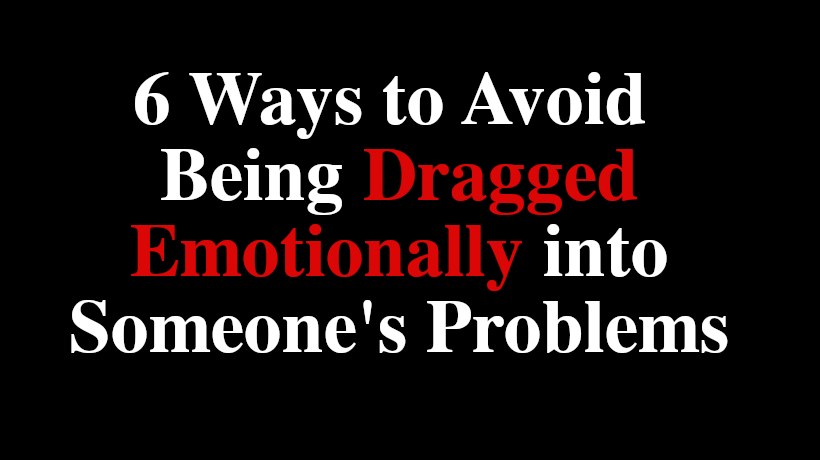Oftentimes, we can get caught up in another person’s energy and emotions. It can be difficult to not feel as stressed out when a friend is venting to you about their problems. Absorbing too much negative energy and emotions can take a mental toll and lead us into emotional burnout. Below are a few ways to not let someone else’s mood or problems affect yours.
See Emotion as a Symptom
Ilene S. Cohen, Ph.D. says, “When someone we care about is very anxious, overwhelmed with sadness, or just plain frustrated, it’s natural to see the emotions they are feeling as the problem.” However, this type of thinking is not helpful because it makes the brain see emotions as problems and something to get rid of. Emotions are natural and if we view emotions as a symptom rather than a problem, we are able to become curious about their symptoms — which, according to Cohen, is much more helpful in the long run.
She suggests asking questions such as:
- What is it like for you to be experiencing these emotions?
- What is your best theory for why you are feeling this way?
- Even though you don’t like feeling this way, what do you think this emotion is telling you?
Practice Empathy…
Odds are, you have felt the same emotions as your friend who may be venting to you has. It is important to practice empathy. Try to think back to a time when you felt the same way or put yourself in their shoes. How must they be feeling? What advice did you wish you received when you were in the same position?
Cohen states, “The more you can relate to what they’re going through, the better your odds of being genuinely helpful and supportive, not to mention being less reactive and emotional yourself.”
But Remind Yourself Their Pain is Not Your Pain
It is easy to get caught up in empathy and sometimes we can take it a little too far. I know I have. You want to be able to separate your emotions from the emotions of others. Creating clear and healthy emotional boundaries is helpful in being a supportive friend. If you need to, remind yourself that you are not going through the pain, says Natasha Tracy, a mental health advocate and author of Lost Marbles: Insights into My Life with Depression & Bipolar. After all, your emotions can affect theirs as well.
Practice Active and Reflective Listening
Sometimes your friend just needs a listening ear and does not actually want any advice. They may want to feel understood and acknowledged in their pain. Listen intently and try to be present without dishing out unsolicited advice.
What is reflective listening? Cohen states, “Reflective Listening means that when someone tells you something, you simply reflect back to them what they said, either literally or with your own understanding.”
Remember you are not responsible for their emotions
Cohen states simply, “In short, because you can’t control how someone feels, you’re not responsible for them. When you stop expecting to be able to make someone feel better, you can start taking real steps to connect with them in a heartfelt way and become genuinely supportive.”
Let go of the feeling of responsibility. You do not have to fix them. How they feel and express their emotion is up to them. Do not take on any unnecessary burden or emotion because you feel responsible.
As a result, you can…
Take a break
If you are starting to feel overwhelmed or cannot be their sounding board, Dr. Adam Gonzalez, assistant professor of psychiatry and founding director of the Mind-Body Clinical Research Center at Stony Brook University School of Medicine, says it is absolutely okay to remove yourself from the situation.
Gonzalez expresses, “Setting good boundaries with colleagues and loved ones is very important when trying to provide support and manage your own emotional responses in a healthy way.”
Sources:



